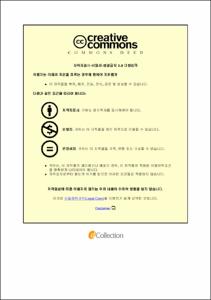학대피해아동쉼터 생활복지사의 심리적 안녕감이 양육태도 및 회복탄력성에 미치는 영향
- Alternative Title
- The Effects of Psychological Well-being on the Rearing Attitudes and Resilience of Social Workers at Shelters for Abused Children
- Abstract
- The purpose of this study is to study the effects of the psychological well-being of a social worker who is working in a shelter for child abuse victims to parenting behavior and resilience. And, the study aims to provide basic resources to find out various support methods to increase the psychological well-being of a social worker and enable child abuse victims to grow up healthily.
The research topics are as follows; First, what are the relationship between psychological well-being, parenting behavior, and resilience of a social worker at a shelter for child abuse victims? Second, what is the effect of psychological well-being of a social worker at a shelter for child abuse victims on the parenting behavior and resilience? Third, what are the relative influences of sub-factors of psychological well-being on parenting behavior and resilience?
The target of this study was 122 social workers who work at shelters for child abuse victims across the nation. The tools used in the study are as follows; First, in order to measure psychological well-being, PWBS developed by Ryff(1989) was used by Kang Hyun-ju(2017)’s reorganized criterion of 27 questions. Second, in order to measure the parenting behavior, Shaefer’s MBRI was used by Kang Eun-young(2002)’s modified criterion into social workers. Third, in order to measure resilience, CD-RISC developed by Conner & Davidson(2003) was used as a validated criterion after it was adopted in Korea.
Materials gathered in this study was analyzed by using the SPSS v.25 program as follows; First, in order to find the general characteristics of the study target, an analysis of frequency was carried out, and in order to analyze the trust of the study tools, the coefficient of Cronbach’s α was calculated. Second, in order to find the average and standard deviation of psychological well-being, parenting behavior, and resilience, descriptive statistics were calculated, and in order to find the relationship of sub-factors of psychological well-being, parenting behavior, and resilience, a correlation analysis was carried out. Third, in order to find the effect of psychological well-being on parenting behavior and resilience, a regression analysis was carried out. Forth, in order to find out the relative effects of sub-factors of psychological well-being on parenting behavior and resilience, a phased regression analysis was carried out.
The overall results of the study are as follows; First, psychological well-being and parenting behavior were generally above average, however, they were not so high. Resilience was on a relatively high level, and three variables showed a statistically significant positive correlation. Second, psychological well-being has a statistically significant effect on parenting behavior and resilience. Third, control, a purpose of the life, and autonomy among the sub-factors of psychological well-being have a statistically significant effect on parenting behavior, and a purpose of the life, interpersonal relationship, and autonomy have a statistically significant effect on resilience.
The results of this study have established that psychological well-being is an important variable for the positive parenting behavior and high resilience of social workers at shelters for child abuse victims. In addition, rather than recognizing social workers’ satisfaction with life as an individual issue, It is suggested that practical efforts should be made to develop and apply a program to promote psychological well-being so as to reduce many stressors that social workers experience during practice.
- Issued Date
- 2019
- Awarded Date
- 2019. 8
- Type
- Dissertation
- Publisher
- 부경대학교
- Affiliation
- 부경대학교 교육대학원
- Department
- 교육대학원 아동심리및상담전공
- Advisor
- 이연우
- Table Of Contents
- 1.서론 1
1.1.연구의 필요성 및 목적 1
1.2.연구문제 6
1.3.용어의 정의 6
2.이론적 배경 8
2.1.학대피해아동쉼터 8
2.1.1.학대피해아동쉼터의 개념 및 특성 8
2.1.2.학대피해아동쉼터 운영실태 9
2.1.3.생활복지사의 역할 10
2.2.심리적 안녕감 11
2.2.1.심리적 안녕감의 정의 및 하위요인 11
2.2.2.심리적 안녕감에 관한 선행연구 12
2.3.양육태도 13
2.3.1.양육태도의 정의 및 유형 13
2.3.2.양육태도에 관한 선행연구 15
2.3.3.심리적 안녕감과 양육태도에 관한 선행연구 16
2.4.회복탄력성 17
2.4.1.회복탄력성의 정의 및 구성요소 17
2.4.2.회복탄력성에 관한 선행연구 19
2.4.3.심리적 안녕감과 회복탄력성에 관한 선행연구 20
3.연구방법 21
3.1.연구대상 21
3.2.연구도구 22
3.3.연구절차 25
3.4.자료분석 26
4.연구결과 27
4.1.심리적 안녕감, 양육태도, 회복탄력성간의 관계 27
4.2.심리적 안녕감이 양육태도에 미치는 영향력 30
4.3.심리적 안녕감이 회복탄력성에 미치는 영향력 32
5.논의 34
5.1.논의 및 결론 34
5.2.제언 36
참고문헌 38
부록 48
- Degree
- Master
- Files in This Item:
-
-
Download
 학대피해아동쉼터 생활복지사의 심리적 안녕감이 양육태도 및 회복탄력성에 미치는 영향.pdf
기타 데이터 / 715.78 kB / Adobe PDF
학대피해아동쉼터 생활복지사의 심리적 안녕감이 양육태도 및 회복탄력성에 미치는 영향.pdf
기타 데이터 / 715.78 kB / Adobe PDF
-
Items in Repository are protected by copyright, with all rights reserved, unless otherwise indicated.